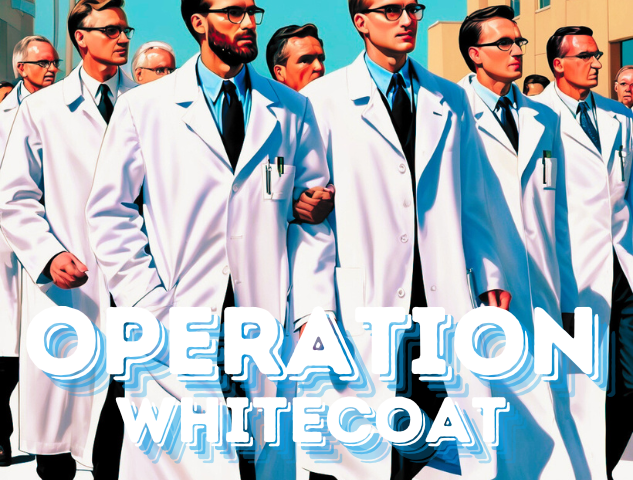Recent Posts
Newsletter
Subscribe to our newsletter to get our latest update & news consenter
Subscribe to our newsletter to get our latest update & news consenter

Operation Whitecoat was a U.S. Army medical research program that ran from 1954 to 1973, during which conscientious objectors from the Seventh-day Adventist Church volunteered to participate in experiments to test the effects of biological agents and to develop medical countermeasures. The operation was part of a broader effort to understand and protect against biological warfare during the Cold War. While the volunteers were aware of the risks, the ethical implications and potential long-term effects of the program have been subjects of debate.
Objective: The primary goal of Operation Whitecoat was to study the effects of biological agents on humans and to develop vaccines and treatments to protect against biological warfare. The operation focused on diseases such as Q fever, tularemia, yellow fever, and Venezuelan equine encephalitis.
Methods: Approximately 2,300 Seventh-day Adventist servicemen volunteered to participate in the program. They were deliberately exposed to biological agents, either by inhalation, injection, or ingestion, under controlled conditions. The participants were then closely monitored to study the progression of the disease and the effectiveness of vaccines and treatments.
Participants: The participants were mostly Seventh-day Adventists who objected to bearing arms due to their religious beliefs. These men were offered the option to serve as medical test subjects instead of taking up combat roles, making them “conscientious objectors.”
Key Organizations Involved:
U.S. Army Medical Research Institute of Infectious Diseases (USAMRIID): The institute at Fort Detrick was the primary site for the experiments, where biological agents were tested on volunteers.
U.S. Department of Defense: The Department of Defense oversaw Operation Whitecoat as part of its broader Cold War-era efforts to prepare for and protect against potential biological warfare.
Additional Key Individuals and Organizations Involved:
Seventh-day Adventist Church: The church played a significant role, as many of its members served as volunteers due to their status as conscientious objectors. The church leadership was aware of the program, and there was a general understanding among the volunteers about the nature of the experiments.
Dr. John Casida: A notable scientist involved in the research, Dr. Casida contributed to the development of medical countermeasures during the operation.
Implications of Operation Whitecoat:
Ethical Precedents in Human Experimentation: The operation set a precedent for the ethical standards required in human experimentation, particularly in military research. The emphasis on informed consent, even in a controlled environment, influenced future policies and regulations.
Impact on Civil-Military Relations: The involvement of conscientious objectors in military research highlighted the complex relationship between civil liberties and national security. The operation demonstrated the potential for collaboration between military objectives and individual rights, though not without controversy.
Risks Associated:
Exposure to Biological Agents: Volunteers were deliberately exposed to dangerous pathogens, leading to acute infections and illnesses. Although the experiments were conducted under controlled conditions, the risks of serious health complications were significant.
Potential Long-Term Health Effects: While immediate health effects were closely monitored, the long-term health implications for the participants remain unclear. Some former volunteers have reported ongoing health issues, though studies have not conclusively linked these to their participation in the program.
Additional Risks:
Ethical Concerns: Although the volunteers gave informed consent, the ethics of exposing individuals to potentially deadly pathogens, even with their consent, have been questioned. The pressure to participate, given their status as conscientious objectors, also raises ethical concerns about the voluntariness of their consent.
Psychological Impact: The psychological impact of participating in such high-risk experiments, including stress, anxiety, and fear of long-term health consequences, is another area of concern.
Books:
Resources: